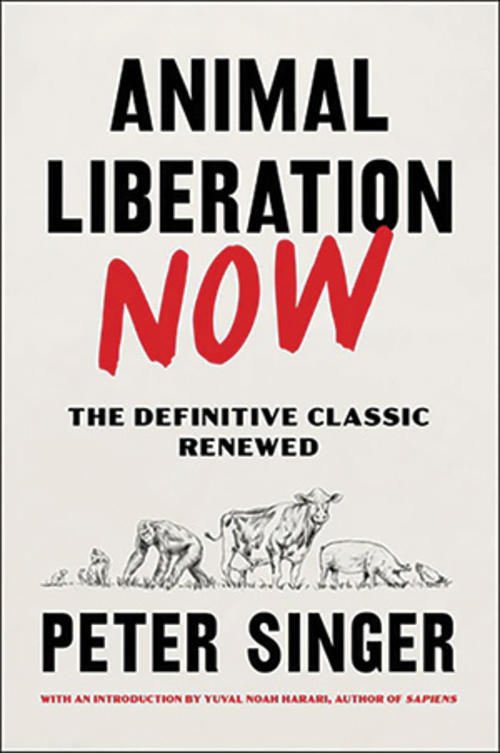Bioethics Professor Peter Singer Renews His Fight For Animal Rights
Before Peter Singer’s 1975 classic, Animal Liberation, “there wasn’t really an animal movement,” Singer says. His book inspired the founding of People for the Ethical Treatment of Animals (PETA) and a growing awareness of the abuses involved in factory farming and scientific experimentation with animals.
But the 77-year-old Australia native, who will soon retire as the Ira W. DeCamp Professor of Bioethics at Princeton’s University Center for Human Values, wasn’t satisfied. Animal Liberation was last revised in 1990 and, since then, Singer says, “the problem hasn’t gone away.” The preface to his latest book, Animal Liberation Now (Harper Perennial), published in May, maintains that, despite considerable progress, “we are still failing to prevent atrocities on a vast scale.”
The new book revisits and updates Singer’s groundbreaking arguments in stomach-churning detail. He notes, for example, that in 2020, in the United States, “a million pigs were locked in sheds to which heat and humidity were then added until they died of heatstroke.”
The “connecting thread” unifying Singer’s utilitarian philosophical enterprise is “trying to eliminate unnecessary suffering,” he says. In Animal Liberation Now, Singer stresses that animals — not just mammals and birds, but fish, octopuses, lobsters, and crabs — are sentient beings, capable of feeling pain. For that reason, he says, their interests deserve “equal consideration” with those of human beings.
To deny that consideration amounts to “speciesism,” which he defines as “an ideology that props up a system that works to human advantage.” The rhetorical parallel to racism and sexism is deliberate. But those oppressed by speciesism can’t fight their own battles. “That’s why somebody needs to speak up for the animals,” Singer says.

For the original book, Singer visited factory farms. For Animal Liberation Now, he draws primarily on farm journals and other industry sources to describe the filthy, cramped conditions in which chickens, pigs, and cows typically are kept, and how painfully they live — and die. While the European Union, the United Kingdom, and some U.S. states have instituted reforms, overall changes to U.S. farming practices “have been pretty minimal,” he says. And animal experimentation — much of it, in his view, both cruel and pointless — is continuing.
What he calls “the suffering of farmed fish” figures more prominently in the current book. Also new are references to the potential danger of pandemics fostered by factory farming and the impact of agribusiness on climate change.With his wife, Renata, Singer became a vegetarian in 1971 and now describes himself as a “flexible vegan.” Animal Liberation Now concludes with recipes for Austrian lentil soup, Renata’s borscht, and other family favorites.
Singer lives his beliefs in other ways as well. He founded a nonprofit called The Life You Can Save (based on his 2009 book of that title) that embodies his adherence to “effective altruism.” When he won the prestigious $1 million Berggruen Prize for Philosophy and Culture in 2021, he donated the money: half to The Life You Can Save, 10% to poverty-related charities recommended by that organization, and the final 40% to animal advocacy groups. In more typical years, he says, he donates between 30% and 50% of his income to similar causes.
Singer has been the subject of fierce critical debate and protest. His most controversial view has been that it is ethical for parents to choose to terminate the life of a severely disabled infant after consultation with a physician. He later qualified that position by advising parents also confer with parents of disabled children and people living with similar disabilities. He also co-founded the peer-reviewed interdisciplinary Journal of Controversial Ideas, a home for academic thought that challenges current ideological conventions.
Singer’s own latest work has explored the linkages between artificial intelligence and animal rights. While some have voiced concerns that AI discriminates against Black people and women, “it is discriminating against animals as well,” he says.












No responses yet